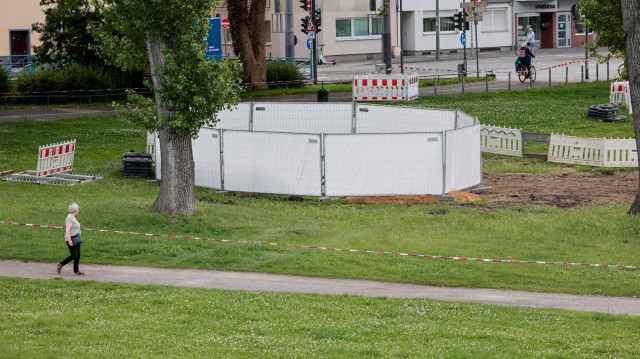Largest Bomb Disposal Effort Since WWII
Cologne, one of Germany’s most historic cities, is undergoing its largest evacuation since World War Two after the discovery of three massive unexploded American bombs in the Deutz neighbourhood. More than 20,500 residents were ordered to evacuate within a 1,000-meter radius of the site, as officials prepared for a high-risk bomb disposal operation.
The city described it as “the largest operation since the end of WWII”, with bomb disposal experts set to neutralize the devices on Wednesday, 4 June 2025.

How the Bombs Were Found
The bombs were discovered during routine construction work at a shipyard in Deutz on Monday. Though finding wartime bombs is not unusual in Germany, the size and number of these devices triggered an urgent and expansive evacuation procedure across the city centre and Old Town.
Evacuation Orders and Public Response
Police and public order officers went door to door, ordering people to evacuate. According to city officials, anyone refusing to leave their homes could face hefty fines and even forced removal by law enforcement.
“If you refuse, we will escort you from your home – if necessary by force – along with the police,” the city warned in its official statement.
The evacuation zone includes homes, shops, nine schools, 58 hotels, several museums, and even the historic Philharmonic Hall. The Eduardus Hospital was also evacuated, including intensive care patients who were moved by ambulance.
Transportation Chaos and Disruptions
The operation has caused widespread travel chaos. The Messe/Deutz train station was shut down at 08:00 local time, and all roads within the affected zone were closed. Public transport services were disrupted, and numerous train services canceled.
While Cologne Bonn Airport remains open, authorities warned that travel to and from the airport could be extremely difficult.
Community Impact and Emergency Services
The authorities have set up two drop-in centres to assist people with no alternative accommodation. Residents were told to bring identification, essential medication, and care items for pets.
City streets usually bustling with life were eerily quiet. Cultural institutions and government offices suspended operations, and several weddings scheduled for the day had to be relocated.
“It’s a historic disruption,” said Gabriela Pomeroy, reporting from Cologne. “But the city is prioritizing safety above all.”
Why WWII Bombs Still Threaten Germany
Germany continues to grapple with the legacy of Allied bombings during World War Two. More than 1.5 million tons of bombs were dropped on German soil during the war. Tens of thousands failed to detonate and remain buried in cities like Berlin, Frankfurt, and Cologne.

Experts estimate that hundreds of unexploded bombs are still hidden underground, and many are only found during construction work. Bomb disposal units are specially trained to defuse or detonate these devices, often in high-risk operations that require mass evacuations.
For more on the historical context, read our in-depth article on WWII bombs in German cities.
What Happens Next?
Officials say the defusing process can only begin once every resident has vacated the danger zone. Depending on the condition of the bombs, disposal may take several hours or longer. The city has assured the public that updates will be shared through local media and emergency alert systems.
For now, Cologne stands still — a stark reminder that the scars of war, even 80 years later, can still disrupt everyday life.